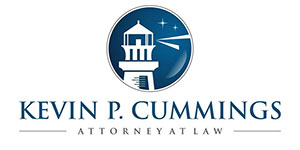
Trusts are essential tools in estate planning and can serve many purposes. A variety of trusts are available to protect you, your family, and your assets. Trusts can decrease tax liabilities, protect funds from creditors, and protect privacy, since trusts are not public documents. A trust is legally defined as a relationship in which property is held by one party for the benefit of another. A trust is created by the owner, who transfers property to the trustee, an individual chosen to manage the designated funds for the trust’s beneficiaries.
Types of Trusts:
Revocable Trusts are also known as living trusts. This type of trust can be changed or revoked during your lifetime. The price of this flexibility is that the revocable trusts remain part of your estate and can therefore be taxed. Even so, when you die, the revocable trust will become irrevocable and the property held in trust will be passed on to your beneficiaries. Two important advantages of revocable trusts are that they avoid probate and they preserve your financial privacy.
Irrevocable Trusts cannot be changed or revoked once they have been created. Examples of irrevocable trusts are trusts for minors, insurance trusts, and charitable trusts. This type of trust is permanent and doesn’t provide the flexibility of revocable trusts, however, they have tax advantages.
Trusts for Minors are established to protect a minor child until he or she reaches adulthood. While some minors’ trusts provide specific benefits to the minor during childhood, others designate that the funds are only to be distributed when the minor reaches adulthood. Some have restrictions that only permit the minor to inherit funds when he or she reaches a particular age or achieves a particular goal, like finishing college.
Special Needs Trusts are created to protect individuals who are disabled in a way that prevents them from consistently managing their own finances. The beneficiary may be mentally disabled to the point that he or she is incapable of using money in a reasonable way. The trustee of a special needs trust is tasked with distributing the money gradually so that the special needs individual will have enough money for the rest of his or her life. The trustee also manages the funds so that the special needs person does not “own” them and is therefore still eligible to receive government benefits like Medicaid.
Testamentary Trusts are designed to go into effect after you pass away. They can hold assets you have accumulated during your lifetime as well as assets that are only dispensed when you die, such as life insurance proceeds or funds from a wrongful death settlement.
Charitable Trusts are assets that a donor signs over or uses to create a charitable foundation. The assets are held and managed by the charity for a specified period of time, with some or all interest that the assets produce going to the charity.
Trusts are highly effective components of estate planning and are also complex. We can work closely with you to decide which trust will be most useful for your specific situation.
Kevin P. Cummings PLC: Brighton and Ann Arbor Trusts Attorney
Kevin P. Cummings PLC has both the experience and years of professional know-how to make the trust process both worthwhile and personally satisfying. You are invited for a complimentary initial consultation, where we can share with you some of the core strategies available to address your concerns and develop a trust that best protects your interests. If you are looking for an accomplished attorney, Kevin P. Cummings PLC has the experience to make your planning a unique and even enjoyable process.
